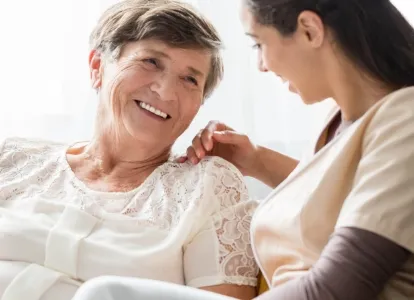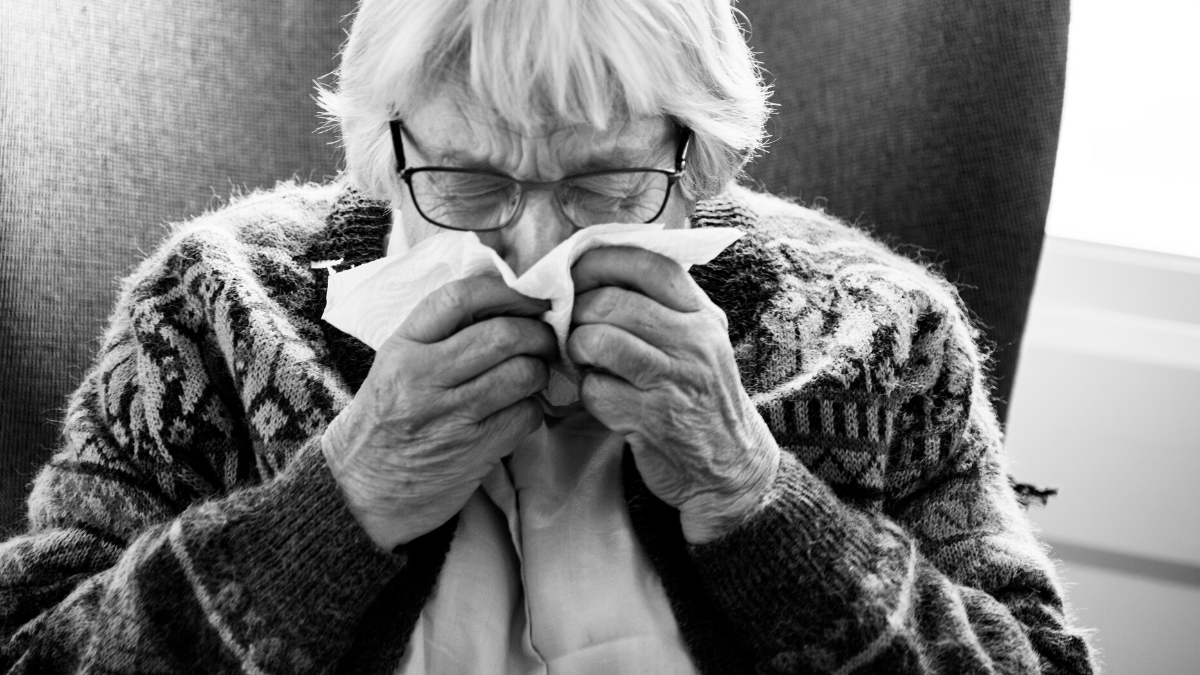What is Covid-19 & How To Keep Your Seniors Safe?
What is Covid-19 and how can you keep your elders safe?
Whether you are a home caregiver, a health care aide or a nursing attendant, the aim is to prevent exposure to germs.
Coronaviruses are a large family of viruses that can cause illnesses ranging from the common cold to more serious respiratory infections like bronchitis, pneumonia or severe acute respiratory syndrome (SARS).
Coronaviruses are spread mainly from person to person through close contact, for example, in a household, workplace or health care center.
Some human coronaviruses spread easily between people, while others do not.
Your risk of severe disease may be higher if you have a weakened immune system. This may be the case for:
- older people
- people with chronic disease (for example, diabetes, cancer, heart, renal or chronic lung disease)
Symptoms and treatment
Symptoms range from mild – like the flu and other common respiratory infections – to severe, and can include:
- fever
- cough
- difficulty breathing

Complications from the 2019 novel coronavirus can include serious conditions, like pneumonia or kidney failure. There are no specific treatments for coronaviruses, and there is no vaccine that protects against coronaviruses. Most people with common human coronavirus illnesses will recover on their own.
You should:
- drink plenty of fluids
- get rest and sleep as much as possible
- try a humidifier or a hot shower to help with a sore throat or cough
If you need immediate medical attention you should call 911 and mention your travel history and symptoms.
How can you keep your elderly or senior loved one safe?
Older people have weaker immune systems and they are more susceptible to contracting the seasonal flu. Caregivers and seniors spend a lot of time together so the chances of a caregiver falling sick are also higher. Moreover, chronic stress and lack of sleep can also weaken the immune system.
Coronaviruses are spread mainly from person to person through close contact, for example, in a household, workplace or health care center.
Some precautions can be taken to reduce the chances for you as a caregiver or your senior loved one and family members. Avoiding exposure to germs should be a priority. There are everyday actions that can help prevent the spread of germs that cause respiratory illnesses.
Take these precautionary everyday steps to reduce exposure to the virus and protect your health and your seniors safety:
Flu vaccine:
A flu shot can reduce the chances of getting the flu and it can also reduce the severity of illness and further complications.
Avoiding Crowded Places:
If you are 60+, or have an underlying condition like cardiovascular disease, a respiratory condition or diabetes, you have a higher risk of developing Covid19. It is extremely important for the elderly to try and avoid crowded areas, or places where they might interact with people who are sick. It is better for seniors to avoid exertion and to defer outdoor tasks to practice safety and precaution.
Wash Your Hands:
As a caregiver make sure you wash your hands frequently and remind your older loved one to do the same. Using the soap properly and washing hands thoroughly is an effective way to get rid of germs. Always keep a sanitizer with you and make sure to keep one near your senior loved one. Sanitizers can make the hands dry and the elderly have fragile skin. It would be useful to keep a good hand cream or moisturizer so they can apply the cream whenever they need it.
Sneeze and Cough Into Your Sleeve:
Many people overlook this precaution, but it is very important not to sneeze or cough in the open air. Hygiene etiquette and practices are crucial to prevent the spread of illness and disease. The best method is to cover your mouth and nose with a tissue when you cough or sneeze. If you don’t have a tissue, make sure you or your senior loved one sneeze into the upper sleeve and never on hands. Cough etiquette’s are extremely important for infection control measures.

Avoid Touching Your Eyes, Nose or Mouth:
It is quite natural for a person to touch their face when they are thinking or even speaking. Touching your face is a very common way for germs to enter the body. One important tip is to be extremely mindful of your thoughts so you can control your hand movements. If you are stressed out, meditate for a few minutes to gather your thoughts. Write down your thoughts on a piece of paper or notebook. Read other tips to alleviate caregiver stress so you can keep yourself and your senior loved one safe.
Avoid Contact With People Who Are Sick:
Many people end up going to work even if they are sick. It is extremely important to stay home if you are sick so you can recuperate and prevent the germs from spreading. Diseases like the Coronavirus are spread quickly and quite difficult to contain, so take the proper measures and stay away from others who are sick. As a caregiver, if you feel you are coming down with the flu, make the necessary arrangement for someone else to take care of your senior loved one till you recover.
Healthy Lifestyle:
Seniors may have a lot of dietary restrictions which makes it difficult to do meal planning. And with a weaker immune system, it is even more important to give your elderly family member proper food. Protein in the form of fish, yogurt, fresh fruit, steamed vegetables is great for immunity, strength and overall health maintenance.
Seek Immediate Help If Symptoms Appear:
Being proactive is the key to maintaining a senior’s health. No symptom should be overlooked and if you feel your senior is lacking strength, coming down with a cold, feeling weak or having difficulty walking, notify your doctor right away. Sometimes minor symptoms can indicate an underlying problem. Flu in seniors with Chronic Obstructive Pulmonary Disease (COPD) or other respiratory problems can quickly escalate and become life-threatening. Seek immediate help from the doctor if any symptom appears.
Keep The Environment Clean:
A clean and safe environment is not just safe for your senior but you as a caregiver as well. Since caregivers and seniors spend a lot of time together it is important to keep all belongings, pillboxes, cell phones, iPad and tables clean and sanitized. Dust can prove to be a very strong allergen for those with severe asthma or respiratory issues. Keeping your environment clean and dust free is beneficial for everyone.
Is there anything else you want to share with us? Leave a comment and let us know.
Sources and image attribution:
https://www.ontario.ca/page/2019-novel-coronavirus
https://www.freepik.com/free-photos-vectors/design





Comments
Why doesn’t this article mention limiting exposure to crowds?
Thank you for bringing that to our attention Rodney, we really appreciate your feedback. That was one of the most important things to consider and we have added that to our list. Thanks again!
[…] What is Covid-19 & How To Keep Your Seniors Safe? […]
[…] What is Covid-19 & How To Keep Your Seniors Safe? […]
[…] will go back and forth when it comes to how often they change a patient or a loved one. With the heightened risk, especially for those with compromised immune systems, social distancing has been encouraged for […]
[…] to the spread of novel Coronavirus, social distancing has become the call of the day. Normally, it is encouraged that seniors must […]